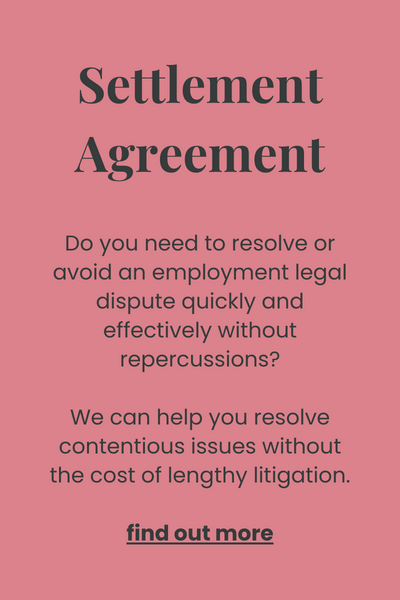Equal Pay

When was the last time you thought about equal pay in your business? Men and women getting paid equal pay for equal work – seems it should be pretty straightforward right? Well, you might be surprised.
Hotly contested areas in equal pay cases are often around whether the work is really ‘equal’, appropriate comparators, and whether there is a legally acceptable justification for any difference in pay.
When we have talked to businesses about equal pay, we have tended to find that whilst there is a general awareness of this area there are also many questions.
Curiosity is great, it can help you to protect your business and support you in treating all your people fairly.
So, let’s take a look at seven frequently asked questions about equal pay that every business should be asking right now.
7 Questions About Equal Pay Every HR Manager Should Answer.
- Where does the law on equal pay come from?
- Can a man bring an equal pay claim?
- What effect could not paying men and women equal pay for equal work have on my business?
- How does the law on equal pay work?
- What can an employee get if they succeed in an equal pay claim?
- Are equal pay claims brought in an employment tribunal or a civil court?
- What should your business do if an employee complains about equal pay?
Navigate the complexities of Employment Law with our commercial advice.Click HereBuild a bespoke interactive course for your management team, covering key HR areas.Click HereAvoid unnecessary wastage of management time with our professional help when defending tribunal claims.Click Here
Previous slide
Next slide
1. Where does the law on equal pay come from?
The short answer is that the Equality Act of 2010 implements the principle that men and women should receive equal pay for equal work, prior to this it was the Equal Pay Act of 1970.
Whilst things have moved on since equal pay laws were first introduced, there is still a significant gender pay gap, and employment tribunals and courts continue to hear cases concerning equal pay.
2. Can a man bring an equal pay claim?
Yes, the principles of equal pay apply to men and women. A man can bring an equal pay claim based on a comparison with a female colleague if he has grounds to do so.
3. What effect could not paying men and women equal pay for equal work have on my business?
From an employment law perspective, it exposes your business to the risk of a claim (or even multiple claims) for equal pay.
This could prove financially costly for your business – not only in terms of the amount you could be ordered to pay if an employee is successful in a claim but also in the amount of management time it takes to deal with any litigation or internal complaints that are raised.
Many businesses will also be concerned about the impact losing an equal pay claim could have on their hard-earned reputation.
Equal pay claims are often brought in employment tribunals, decisions are a matter of public record and are published online – equal pay continues to be a hot and sensitive topic for many people.
There’s also the risk that your business could find itself at a competitive disadvantage – ask yourself;
- Can you attract and retain the best talent?
- Get the level of performance your business needs?
- Value their work and pay them in line with the law?
4. How does the law on equal pay work?
In simple terms, the law requires men and women to be given equal pay and contractual terms for equal work, unless the business can show that there is a material reason for the difference which does not discriminate on the basis of sex.
Let’s take a closer look:
What is equal pay?
Equal work is:
- ‘Like work’
- Work rated as ‘equivalent’ or
- Work of equal value
What does equal pay cover?
Equal pay covers things such as:
- Basic pay
- Overtime rates and allowances
- Performance-related pay
- Sick pay
Employees can compare such terms in the contract of employment with the equivalent terms in a comparator’s contract.
A comparator is an employee of the opposite sex working for the same employer (they can also be a previous employee, for example, a predecessor in the job).
Bear in mind that a comparator does not have to be representative of employees doing that particular type of work.
What is a ‘material reason’?
To rely on ‘a material reason’ (the material factor defence) you will need to prove amongst other things that the factor(s) on which you are relying:
- Is the real reason for the difference in pay and that it is not a sham or pretence
- It is the cause of the difference in pay between the person complaining about a breach of equal pay law and the comparator
- It is significant and relevant and doesn’t involve direct or indirect sex discrimination
Whether a defence is made out will depend on the circumstances of each individual case.
Set your standards and expectations through tailored policies, recognising your business ethos.Click HereApproach poor performance with target driven processes to achieve a desirable outcome for your business.Click HereManage requests for reduced hours or hybrid working, in line with what works best for you.Click Here
Previous slide
Next slide
5. What can an employee get if they succeed in an equal pay claim?
Where an employee succeeds in an equal pay claim, a sex equality clause will be implied into the employee’s contract of employment.
The effect of this is that the less favourable term(s) of their contract is replaced by the equivalent more favourable term(s) of the comparator.
The tribunal or court can also order the employer to pay arrears of pay up to six years, or damages in the case of a non-pay contractual term.
Unfortunately, things might not end there because we have found that businesses aren’t always aware of ‘piggyback claims’.
For example, if a woman is successful in bringing an equal pay claim, a man may (if the circumstances warrant it) bring a ‘piggyback claim’, using as his comparator the woman who has brought a successful equal pay claim.
Getting it right from the start when it comes to complying with the law on equal pay really can save problems later.
6. Are equal pay claims brought in an employment tribunal or a civil court?
The short answer is that employment tribunals and civil courts both have jurisdiction to hear equal pay claims, however, they are more commonly brought in an employment tribunal.
In our experience, businesses are sometimes puzzled about why an equal pay claim can be brought in the civil courts (the High Court and county courts in England and Wales).
It’s possible as equal pay law operates by way of an equality clause that amends the contract of employment, a breach of equal pay law is a breach of contract and can therefore be the subject of action in the civil courts.
Where a claim will be brought can depend on the facts of the case, as you would expect there are rules that cover the ‘cross-over’ of jurisdiction between courts and employment tribunals.
One thing to bear in mind – if an employee is out of time to bring an equal pay claim in an employment tribunal they could bring it in the civil courts if they are in time there (six years in England and Wales).
Want to know more about time limits or employment tribunal claims? Get in touch.
7. What should your business do if an employee complains about equal pay?
It’s vital to take such complaints seriously and to bear in mind that you will need to deal with any that do arise promptly and appropriately.
This will usually mean addressing your employee’s complaint via your business’s grievance procedure.
In outline, this is likely as a minimum to involve:
- Formally meeting with the employee to hear their grievance
- Fully investigating the matter (and ensuring that the investigation is fully and appropriately documented)
- Giving the employee a written outcome and a right of appeal
There can be a lot to think about for businesses when it comes to handling a grievance of any kind.
If you haven’t dealt with a grievance before or it’s been a while since you did, remember not only to familiarise yourself with your business’s grievance policy but also be aware of the ACAS Code of Practice on Disciplinaries and Grievances.
It’s a statutory code, if this isn’t complied with and the employee succeeds in their equal pay claim at tribunal the amount of compensation you can be required to pay can be increased.
Looking for a more commercial approach to dealing with the issue you are facing? You may wish to find out more about our settlement agreement service.
If an employee in your business raises a complaint about equal pay (or any other HR issue), your first step should be to contact us for business focussed advice and support on the specific situation your business is facing. It can be all too easy to make a misstep when dealing with HR/employment law matters and issues such as equal pay can be particularly complex.


Bespoke Contracts of Employment for ultra protectionClick HereAbsence Management Support for sensitive situationsClick HereHas an employee’s recent behaviour warranted disciplinary action?Click Here
Previous slide
Next slide